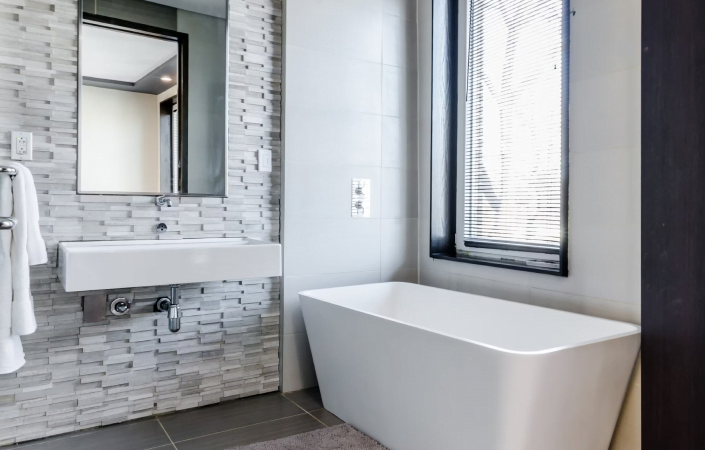Discover essential tips for selecting the right general contractor for your project. Make informed decisions and ensure your project’s success—read more!

Introduction
You have already spent weeks and months planning your new home or commercial construction project. But before you get the ball rolling, there is one last thing that you need to do – “Choose a general contractor.”
This one decision of yours can make or break the deal.
The wrong decision can lead to delays, unexpected costs, and frustration. That’s why finding a good contractor is essential.
But don’t worry; we’re here to guide you through the process of selecting the best general contractor for your specific needs.
Before you identify the best contractor, we want to walk you through some of their key responsibilities and duties. Understanding what a contractor does will also help you understand the different phases of your project.
Let’s jump right in.
General Contractor Core Duties

The contractor will be your primary POC (point of contact) for any construction process, whether commercial or home improvement.
They are responsible for overseeing the entire project from start to finish.
Their primary role is to manage all aspects, ensuring the project stays within budget, meets deadlines, and adheres to quality standards.
Among their primary responsibilities are arranging subcontractors like electricians, plumbers and carpenters for particular jobs, hiring construction workers, sourcing the raw materials and supervising the construction site.
A general contractor also handles the necessary permits and ensures all work complies with local building codes.
In other words, they are the manager of the project and are responsible for (nearly) everything that unfolds during the building period.
Whether building new or working with a remodeling contractor, having a good contractor can make all the difference.
“Now that you’ve got a clear understanding of a general contractor’s role, let’s move on to the key factors you should consider when choosing the right one for your project.”
Research and Recommendations
The first step is too simple: go and ask around.
Chances are good that your friends, family or neighbors have already done similar projects. With their first-hand knowledge you can find a sound contractor to help you manage your home redesign. And who better to recommend general contractors than people you trust?
Next, explore online platforms.
Sites like Yelp, Google Reviews, and contractor-specific platforms can give you a broader view. Read reviews from previous clients to help you decide which general contractor to hire.
Were they professional? Did they stay on budget?
Also, be sure you are referring to the Better Business Bureau. It is a good source to verify the credibility of a contractor.
Prioritize Local Contractors
When building your list, consider local options.
Local general contractors know the regulations in your area and are easier to reach if follow-ups are needed.
They would also be much more aware about the sourcing options in the local area.
Check for Certifications and Licences
The biggest concern, is using third party contractors who are unlicensed or uninsured.
If the contractor is licensed, then you can be certain they have skills to handle your project. It is a sign that they understand the rules and regulations they need to abide by.
And equally important is insurance.
That way, in case things don’t turn out as expected during the job (say an accident or something getting damaged) you are still covered.
A building contractor without these documents is a red flag and should be avoided.
Unless they have something to hide, the majority of general contractors will also be proud to show you their credentials, so don’t be afraid to ask
Assess Their Experience and Track Record
Practical experience does matter when looking for a new contractor.
You want to be able to trust that they have an excellent track record of similar projects. Do they have experience in residential construction or commercial construction?
Or are they focused on remodeling projects? Asking these questions can help you avoid unnecessary risks.
A qualified contractor should be able to offer work samples. We also recommend asking them how many similar projects they have done, and requesting for a portfolio to see their results.
You can also request to talk to their previous costumers. This will help you to understand how they handle time, costs and the work itself in general.
Compare Multiple Bids
It’s always smart to get multiple bids before making a decision.
Contact a minimum of five different contractors, and ask each for a comprehensive quote. Price, of course is important but you should also consider the quality of materials they use, their timeline and services they offer.
If a bid seems too low, it might be too good to be true.
Could there be hidden costs? Or are they cutting corners? Choosing the right contractor is about more than finding the cheapest option.
It’s about getting the best value for your project.
Initial Communication is Key
First impression counts. How they handle initial communication can tell you a lot.
Are they easily reachable?
And do they answer your questions “clearly”?
If you are trying to get in touch with them and they are hard to reach at the beginning imagine how must harder you will have to do so during project delivery.
Your first interactions can often signal how they’ll manage your project. Are they organized? Do they offer suggestions or insights that show they understand your needs?
It’s not just about their skills—it’s also about how well they handle the process and any other services you might need along the way.
Check Availability and Project Timeline
You should check whether they are available before you proceed. Can they begin on your project when you want them to?
Find out their current project workload and if they can meet your project’s specified timeframes.
Let it sink that they might focus on too many thing at once, and that this will be bad for your project.
Schedules can change and things sometimes get delayed but it is still better to be made aware of their plans potentially effecting yours.
Keen availability of a contractor ensures that your project remains on course.
Budget Management and Payment Schedules
Managing the budget for your project is just as important as choosing the right contractor.
Before signing any contracts, make sure to discuss the budget in detail with your contractor.
Another aspect is the payment schedule.
A reliable contractor will not ask for a large upfront payment.
Instead, they’ll break the payments into manageable phases tied to the progress of the project. (Project Milestones)
This helps ensure the contractor stays committed and that the work is done on time.
Warranties Offered by General Contractors
When selecting a contractor, be sure to inquire about warranties.
An established contractor provides warranty for their workmanship and the materials used.
If something happens to the work after it is completed, you are sure that you will have free repairs if any mistake arises.
Ask what the warranty covers. Is this just for labor, or does it come with parts too? And how long would the warranty last for? Knowing these details ahead of time can save you a ton of pain later.
Final Checklist: What to Review for General Contractor Hiring?

- Verify that the contractor is qualified, licensed and insured
- Make sure that they have experience in the sort of project you are planning.
- Check several quotes to value, not just for price.
- Question the warranties on labor and materials.
- Check communication and responsiveness
- Verify their availability and time schedule to prevent delays.
Wrapping it up
This research-based approach will work wonders and help you cautiously avoid the major pitfalls during a construction project.
For trustworthy Contractors in Northern VA, you can get in touch with us today.
We will be happy to guide you through the entire process, ensuring your project is completed on time and to the highest standards.



